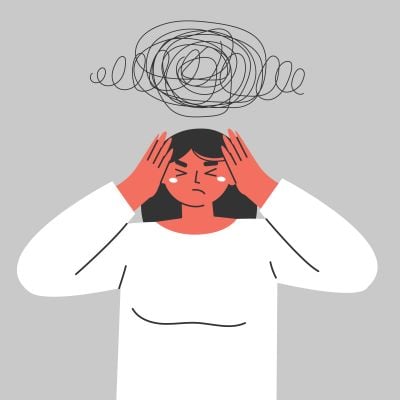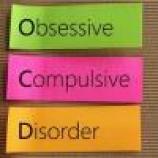How Do I Love Myself When I’m at War with My Mind?
How Do I Love Myself When I’m at War with My Mind?

Excessive cleaning, obsessing over things, repeated checking, and fear of germs. Sound like anyone you know? Your mom? Maybe your aunt or grandmother?
The National Institute of Mental Health reports that, between 2001 and 2003, approximately 1.2% of adults in the United States had OCD in the last year. However, the same statistic also illustrates how OCD is considerably higher in females than males as the prevalence of OCD was about 1.8% for females and 0.5% for males. Therefore, we must ask ourselves: If OCD is higher in females than males, and the symptoms of OCD are stereotypically related to females, how is self-esteem impacted by the symptomology of OCD?
First, I think it’s important to explore that eating disorders, such as Bulimia Nervosa and Anorexia Nervosa, are the highest co-morbid diagnoses amongst women with OCD. For women with OCD, obsessions and compulsions can go far beyond what we typically assume to be the traditionally publicized signs of OCD. Many women suffer from obsessions related to their bodies including the way the look, different parts or aspects of their physical appearance, and how their bodies look or appear in different settings. Therefore, the compulsion that is often associated with these obsessions is checking mirrors, restricting food intake, binge eating, or purging.
Along with eating disorders, comorbid anxiety disorders such as Generalized Anxiety Disorder (GAD) are incredibly common amongst women diagnosed with OCD. Symptoms of anxiety can therefore become exacerbated by OCD and vise-versa. It is here where we find women developing panic attacks, losing sleep, experiencing relationship difficulties, and experiencing restless or impulsive behavior.
We can see through these figures how women with OCD have found themselves pigeonholed in a variety of ways, but specifically as it pertains to their mental health. They often feel lonely, isolated, afraid, and frustrated. In short, they have trouble loving themselves during a time when they are truly at war with their own minds. My question to my fellow therapists who treat women with OCD is this: “How can we teach women to whole heartedly love themselves, when a mind that creates negative, intrusive, and terrifying thoughts is such a large part of us?”
The Ballad of Me and My Brain by The 1975 is a song I reference often with my own therapy clients, but especially with my clients diagnosed with OCD. The story within the lyrics of the song describes the experience of an individual feeling like he has ‘lost his mind’ and illustrates the moments of him almost retracing his steps as he searches for his mind to regain his mental state. This song gives us not only a beautiful metaphor for therapy in general, but more specifically can be used to describe the experience of someone suffering from OCD. The idea of feeling lost and alone, while on the journey to regain oneself by gaining mental clarity is so powerful. The hope within the lyrics though is just that, that our minds are just a part of us, and that we can reconnect with them once we learn to find ourselves again.
Having a codependent relationship with our brains or leaning into the existential therapeutic work of digging into thoughts and their meaning can often lead to the “I am” statements that sound like “I am bad” or “There is something wrong with me” that undoubtedly impact self-esteem and how women see themselves. Therefore, successfully working with women with OCD, in my clinical experience, starts with the separation of the brain, the mind, and the self. By separating who the client is from what they think immediately takes the pressure off of thoughts having a one-way connection to who the client is as a person. I usually start this process by creating a three column chart with the words brain, mind, and me in each header and having the client describe each of these three parts of their thought process
As women continue to experience immense societal pressure and girls endure day-to-day struggles related to gossip, self-comparison, and social media, self-esteem and body image amongst women and girls continues to remain a risk factor. As we continue to research and learn more about OCD in its entirety, I encourage the mental health professionals who treat women with OCD to explore ways to empower, assure, and give hope to these clients as they face immeasurable expectations in our world today.
This post is presented in collaboration with ADAA's OCD and Related Disorders SIG. Learn more about the SIG.
















